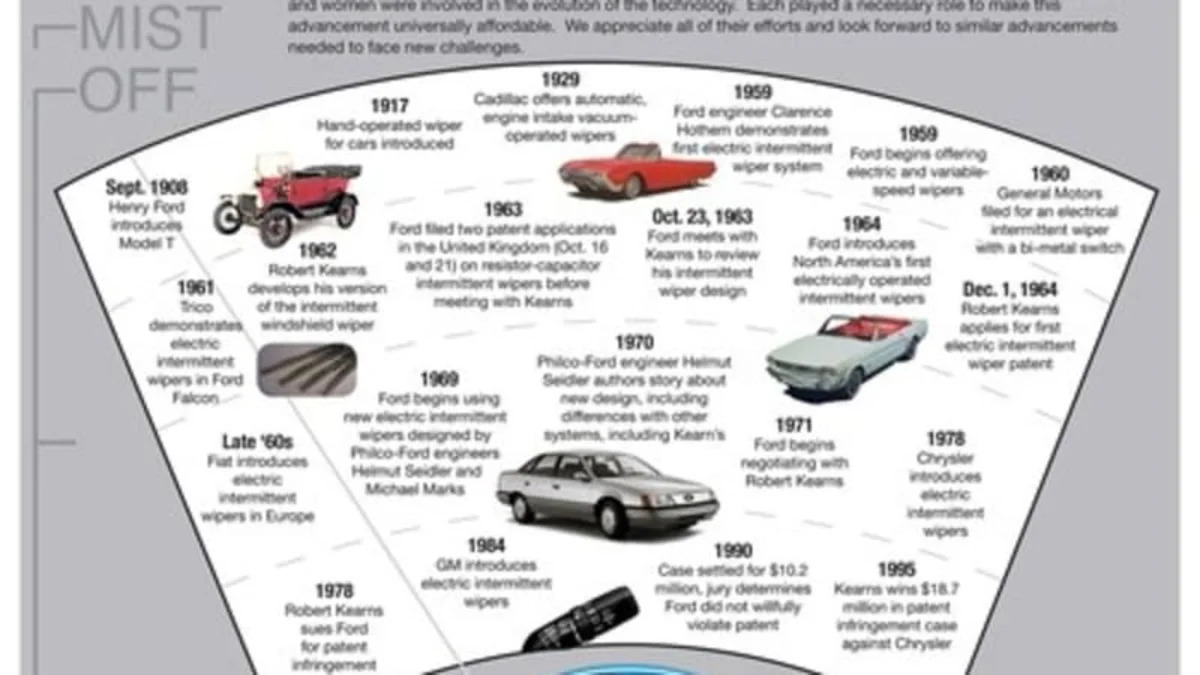Engineer Bob Kearns had been granted a patent for a design of intermittent windshield wipers in 1967, two years before Ford introduced them in production. Unfortunately for Kearns, Ford had "developed" its own system rather than licensing Kearns' design. Needless to say, litigation ensued and it took until 1995 for the U.S. Supreme Court to finally rule against Ford and Chrysler and award Kearns $30 million. That story has now been turned into a major motion picture being released this week called Flash of Genius, and Ford wants you to know that the facts of the matter are much less dramatic than what the movie portrays.
While reminding people that the facts have been dramatized, Ford also mentions that a jury ruled it did not "willfully" infringe on Kearns' patent. That's not to say Ford and Chrysler didn't infringe – juries ruled that they did. It just wasn't "willful." Did Kearns ultimately win? That's hard to say considering how his life turned out, but he was vindicated. On the other hand, many owners of older English cars would argue that Joseph Lucas invented the intermittent windshield wiper, although again not willfully.
[Source: Ford]
PRESS RELEASE
The film "Flash of Genius" chronicles the life story of Bob Kearns, who asserted that he invented the intermittent windshield wiper and sued Ford, Chrysler and other automakers for patent infringement. While films like "Flash of Genius" are made for entertainment purposes, the facts are often less dramatic.
Bob Kearns as well as hundreds of engineers from many companies, including Ford, helped develop the intermittent wiper as part of an evolution of existing automotive and electronic components.
While there are inaccuracies in the film, Ford sees no value in re-hashing the history of a legal case that was resolved in court almost 20 years ago, when a jury ruled that Ford did not willfully violate Mr. Kearns' patent.
Today, Ford continues to make engineering and design breakthroughs in areas such as fuel efficiency, safety and smart technology, and is proud of its 100-year legacy of innovation in automotive technology.


Sign in to post
Please sign in to leave a comment.
Continue